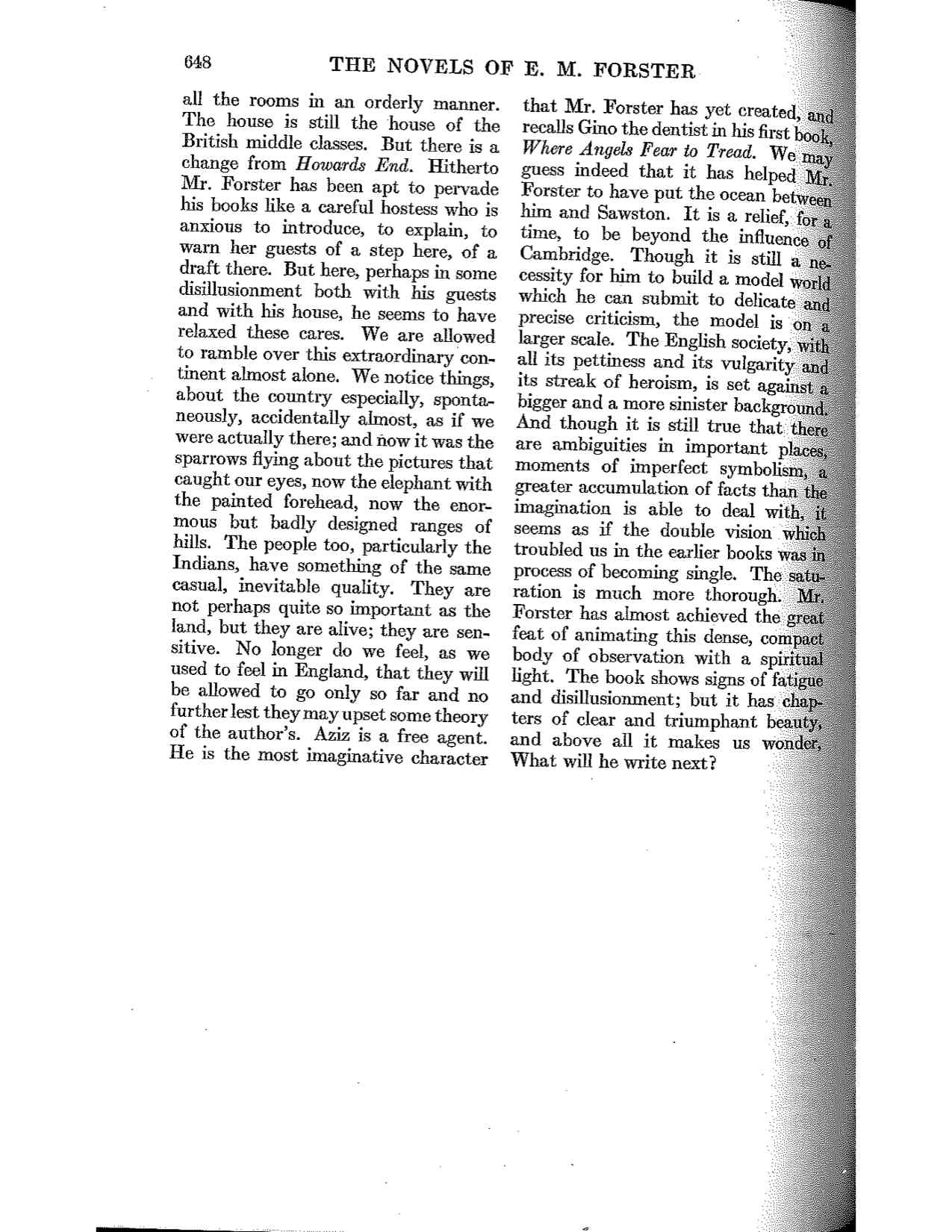
all the rooms in an orderly manner.
The house is still the house of the
British middle classes. But there is a
change from Howards End. Hitherto
Mr. Forster has been apt to pervade
his books like a careful hostess who is
anxious to introduce, to explain, to
warn her guests of a step here, of a
draft there. But here, perhaps in some
disillusionment both with his guests
and with his house, he seems to have
relaxed these cares. We are allowed
to ramble over this extraordinary con-
tinent almost alone. We notice things,
about the country especially, sponta-
neously, accidentally almost, as if we
were actually there; and now it was the
sparrows flying about the pictures that
caught our eyes, now the elephant with
the painted forehead, now the enor-
mous but badly designed ranges of
hills. The people too, particularly the
Indians, have something of the same
casual, inevitable quality. They are
not perhaps quite so important as the
land, but they are alive; they are sen-
sitive. No longer do we feel, as we
used to feel in England, that they will
be allowed to go only so far and no
further lest they may upset some theory
of the author's. Aziz is a free agent.
He is the most imaginative character
[new column]
that Mr. Forster has yet created, and
recalls Gino the dentist in his first book,
Where Angels Fear to Tread. We may
guess indeed that it has helped Mr.
Forster to have put the ocean between
him and Sawston. It is a relief, for a
time, to be beyond the influence of
Cambridge. Though it is still a ne-
cessity for him to build a model world
which he can submit to delicate and
precise criticism, the model is on a
larger scale. The English society, with
all its pettiness and its vulgarity and
its streak of heroism, is set against a
bigger and more sinister background.
And though it is still true that there
are ambiguities in important places,
moments of imperfect symbolism, a
greater accumulation of facts than the
imagination is able to deal with, it
seems as if the double vision which
troubled us in the earlier books was in
process of becoming single. The satu-
ration is much more thorough. Mr.
Forster has almost achieved the great
feat of animating this dense, compact
body of observation with a spiritual
light. The book shows signs of fatigue
and disillusionment; but it has chap-
ters of clear and triumphant beauty,
and above all it makes us wonder,
What will he write next?






